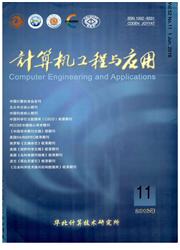

 中文摘要:
中文摘要:
稀疏控制算法将稀疏性系数加入到步长控制因子递推计算过程中,加速了传统回声消除算法的收敛速度。但其快速收敛与低复杂度是一对矛盾的需求。针对这一矛盾,提出了一种基于集员滤波的稀疏控制MPNLMS算法(SM-SCMPNLMS)。该算法中只有当参数估计误差大于给定的误差门限时滤波器系数才进行迭代更新,从而有效地减少了滤波器系数的迭代次数。在稀疏、色散路径以及路径突变三种环境下进行了仿真,结果表明新算法在降低计算复杂度的同时,表现出了与稀疏控制MPNLMS算法同样优良的收敛速度和稳态回波返回损失强度。
 英文摘要:
英文摘要:
Sparseness-controlled adaptive algorithm estimates the sparseness of an impulse response and allocates a higher weighting to the proportionate term in the gain matrix for a relatively more sparse impulse response compared to one which is less sparse. Such that it improves the convergence speed of traditional algorithm. However, the large number of filter coeffi-cients in echo cancellation applications diminishes the usefulness of this algorithm owing to increased complexity. To deal with this problem and improve the computational efficiency, the novel SM-SCMPNLMS algorithm is presented by combining the Sparseness-Controlled law PNLMS algorithm(SCMPNLMS) and the framework of Set-Membership Filtering(SMF). In SM-SCMPNLMS algorithm, the filter coefficients are updated such that the magnitude of the output estimation error is less than a pre-determined threshold. As a result, the proposed algorithm reduces overall computation complexity significantly due to sparse time update. Simulation results show the new algorithm has an attractive faster converge and echo return lossless enhance-ment for three situations of sparse, dispersive and varying channels. Furthermore, it reduces the overall computational complexity due to the data-selective feature of the SMF approach.
 同期刊论文项目
同期刊论文项目
 同项目期刊论文
同项目期刊论文
 期刊信息
期刊信息
